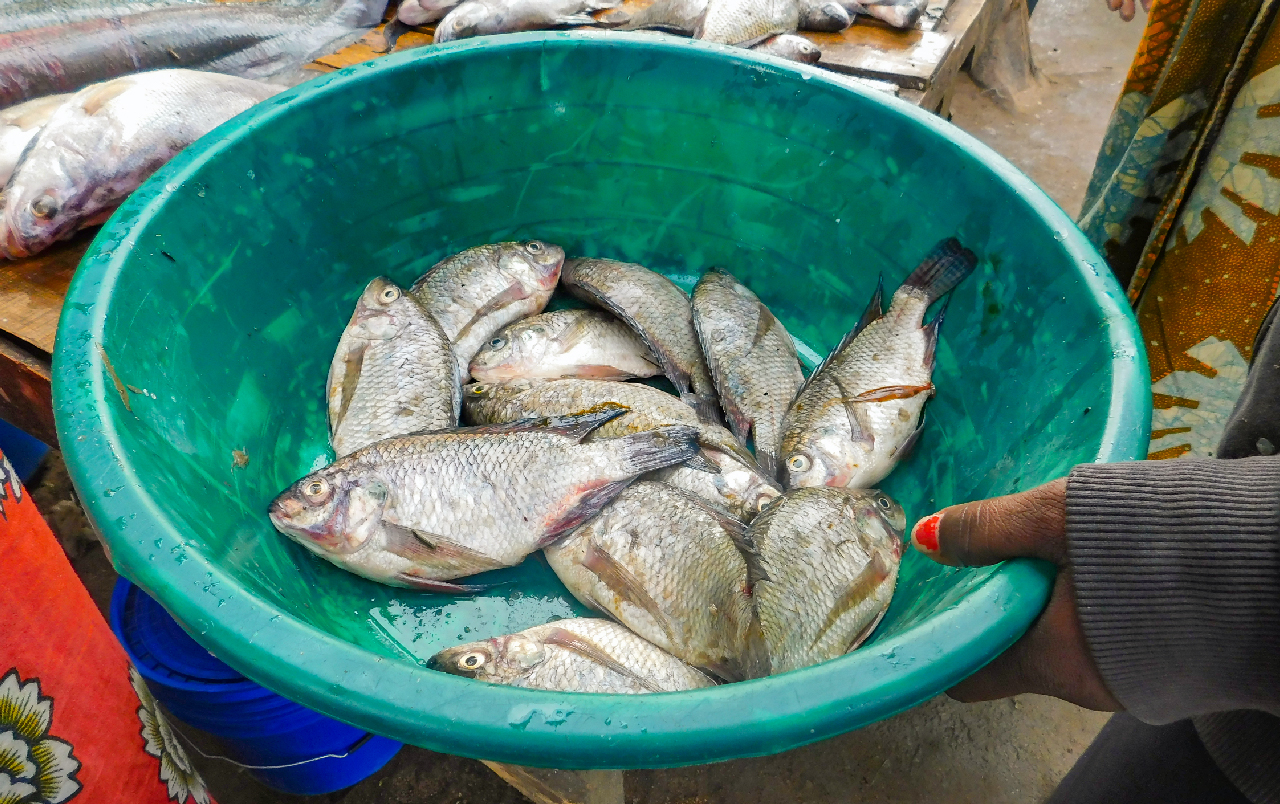Mukasa (33) is a motorcycle transport operator in Uganda whose life changed abruptly with the COVID-19 lockdown in 2020. The young man lives in Namugongo, a suburb of the capital Kampala. He is a father of three, a husband of two, and the eldest among four siblings. Mukasa rents two houses for his wives and pays for their livelihoods and his sons’ school fees. With an average earning of approximately 80 USD per week, he is a breadwinner for the entire family.
Mukasa provides mototaxi and cargo service. Until March 2020, his business was going well. He was planning to purchase a second motorcycle, rent it and earn some extra cash with it. The business was progressing.
One of his fixed tasks was transporting fresh Nile perch and Nile tilapia from the Kiyindi Landing site at Lake Victoria to fish sellers in Mukono, Sonde and Namugongo. For fish buyers, the sight of Mukasa’s motorcycle at about 4 pm every day indicated the arrival of fresh fish.
The lockdown changed everything
For fishers, the night curfew in Uganda meant they had to cast their nets in the evenings. They could only reaccess the lake the following day after 6 am, harvest fish and return to the landing site by no later than 12 pm. Mukasa had to wait for all the due process of checking the fish, weighing the catch, and selling it to factory trucks and retailers before getting his customers’ orders.
On one of his delivery journeys, he accidentally broke the curfew. His motorcycle was seized. Mukasa did not only lose his primary source of income but also had to compensate his customers. On top, he lost their trust.
Lockdown and the fisheries business
Mukasa represents one of many human stories of how the lockdown changed people’s lives in the fisheries business in East Africa. Our new study focuses on the effects of COVID-19 along the entire fish value chain in the region. It is a comparative analysis of the situation in Uganda, which adopted a total lockdown, and Tanzania, which had no lockdown.
The fisheries sector not only provides nutritional and food security benefits but is also a source of employment and income to millions of people. Lake Victoria, for example – shared by Kenya, Tanzania, and Uganda – is a source of livelihood to communities along its shores. Uganda produces 100,000 tons of fish, Kenya produces 48,790 tons, while Tanzania produces 13,530 tons. The measures to prevent the spread of COVID-19 impacted the fishery-dependent communities and their contribution to the country’s Gross Domestic Product.
In the context of East Africa, small scale enterprises dominate the fisheries business. They are all experiencing supply chain disruptions due to COVID-19. The implications of failing to transport and sell fish at markets in Uganda and elsewhere have affected many livelihoods and food security. There is less time for fishing, and some businesses have closed altogether due to curfews, stay at home orders and social distancing enforcement. COVID-19 lockdown has visibly reduced progress towards achieving the UN Sustainable Development Goals (SDGs), especially SDG 1 (zero hunger).
Improving fisheries business beyond the COVID-19 era
COVID-19 has laid bare the deficiencies of the fishery supply chain. It is now vital to reduce the impact of the COVID-19 crisis or any other in the future. Hence, our study recommends the following to the fishing sector:
It is necessary to improve accessibility to cold storage and other fish preservation technologies. These play an essential role in maintaining fish quality for a longer time. Such measures become even more critical in a curfew situation, like the one that Mukasa experienced, or when the catch has to be transported over long distances.
Additionally, it is high time to upgrade the energy infrastructure, especially electricity, in remote areas. It will enable the availability and functioning of fish preservation tools and allow prolonged mobile phone usage for better customer-fisher communication. As a bonus, capacity building of traders in social media marketing would help them reach more customers.
With these suggestions in place, Mukasa and others like him would be able to get back to working in the fish trade without worrying about the shelf life of their product. More importantly, the COVID-19 crisis would have had a positive long-term impact on the sector.


